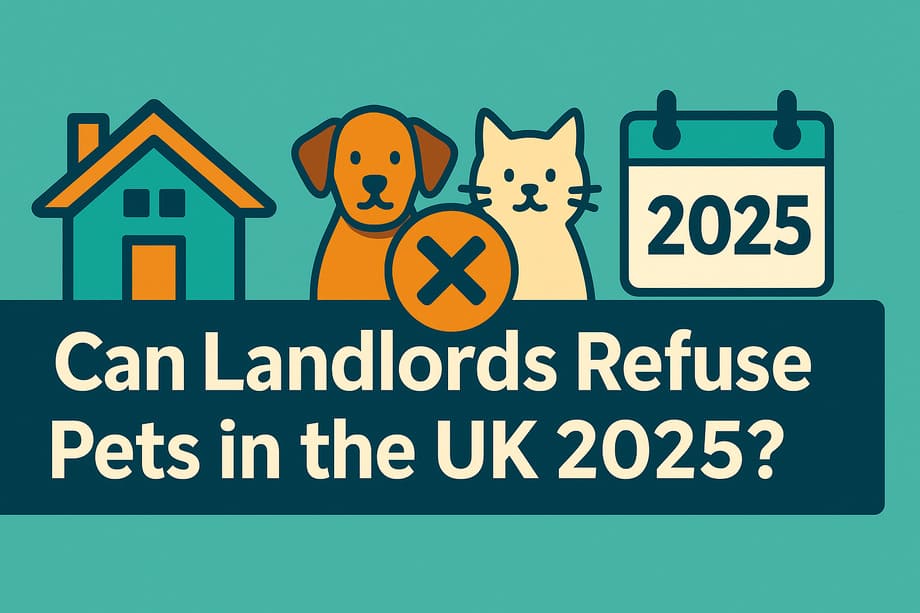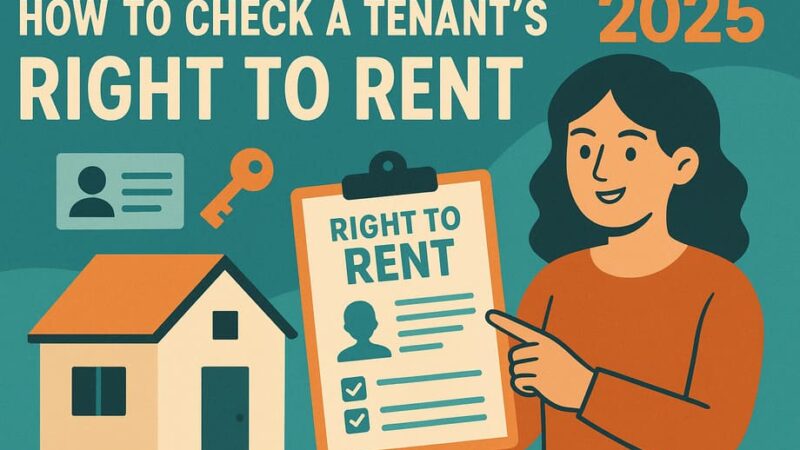Can Landlords Refuse Pets in the UK 2025?

The landscape of renting with pets in the UK is undergoing its most significant transformation in decades. With new legislation on the horizon and evolving tenant rights, both pet owners and landlords are navigating uncharted territory. If you’re wondering whether landlords can still refuse pets in 2025, the answer is more nuanced than a simple yes or no.
The rental market has historically been challenging for pet owners, with only 7% of private landlords currently advertising pet-friendly properties. This scarcity has forced many tenants to make heartbreaking choices between keeping their beloved companions and securing housing. However, significant changes are coming that could reshape this dynamic entirely.
What the New UK Pet Law Says
The game-changing legislation is the Renters’ Rights Bill, introduced in the House of Commons on 11 September 2024. While the bill is currently at the committee stage in the House of Lords and so is not yet law, it’s expected to become law in spring 2025.
The proposed changes are revolutionary for pet owners:
Key Provisions of the Renters’ Rights Bill:
- Tenants will have the right to request a pet, which landlords could not unreasonably refuse
- Landlords can no longer issue a blanket ‘No Pets’ policy
- Landlords must consider your request to live with pets and cannot “unreasonably” refuse
- A landlord must decide if you can keep a pet at the property by the 42nd day after the date of the request
- If they believe their landlord has unfairly refused a pet request, they can now challenge the decision through the Private Rented Sector Ombudsman or in court
Current Law vs. Future Changes
Until the bill becomes law, landlords have the right to refuse pets at their rental property. There’s nothing in the law saying they have to allow pets and it’s within their rights to have a blanket ban on pets in their tenancy agreement.
However, the writing is already on the wall. The government introduced a Model Tenancy Agreement on 28 January 2021, where consent for pets will be the default position, and landlords will have to object in writing within 28 days of a written pet request from a tenant and provide a good reason.
Can Landlords Still Refuse?
Even under the new legislation, landlords won’t be required to accept all pets. The key word is “unreasonably” – landlords can still refuse pet requests, but only with valid justification.
Valid Reasons for Refusal Include:
- Property Suitability: It might be reasonable to refuse permission to keep a large dog in a small flat
- Superior Lease Restrictions: There are situations where it will always be reasonable for a landlord to refuse a request – including where their superior landlord prohibits pets
- Leasehold Properties: Long leases of residential properties contain restrictions on residents owning and keeping pets in the property
- HMO Properties: The property being an HMO (House in Multiple Occupation)
- Animal Welfare Concerns: Concerns about pet welfare (e.g., the tenants want to have a dog but will be out at work during the working week, leaving the dog)
What Constitutes “Unreasonable” Refusal:
The legislation doesn’t provide an exhaustive list of what’s considered unreasonable, but landlords will be required to fully consider all requests on a case-by-case basis. Personal prejudice against pets or blanket policies would likely be considered unreasonable under the new rules.
Protection for Service Animals
It’s worth noting that under the Equality Act 2010, service providers (including landlords) must not directly or indirectly discriminate against people with a disability, and landlords must make reasonable adjustments for assistance dogs.
Deposits and Insurance for Pets
One of the most significant aspects of the new legislation is how it addresses the financial concerns that have traditionally made landlords reluctant to accept pets.
Insurance Requirements
Landlords could require insurance to cover potential damage from pets. This represents a major shift in how pet-related property protection is handled. Tenants must tell the landlord or the letting agent in writing that they have insurance for their pets, or that they are willing to pay “reasonable” costs to cover the landlord’s insurance in case of damage.
Deposit Limitations
Under current rules, the landlord could choose to increase your deposit to cover any potential damage caused by the pet, but that deposit still can’t pass the deposit cap as outlined in the Tenant Fees Act 2019. This means landlords in England cannot charge more than five weeks’ rent as a deposit, even for pet owners.
Real-World Perspective on Pet Damage
Contrary to many landlords’ fears, research suggests pet damage isn’t as widespread as commonly believed. According to the University of Huddersfield 2024 study, 76% of the 2,000 landlords reported that they did not encounter any damage caused by pets in their rental properties, and 84% didn’t have any noise or other complaints from neighbours about their pets. Also, 73% didn’t notice any discernible increase in wear and tear.
However, industry data tells a different story. A recent report by industry trade bodies Propertymark and the National Residential Landlords Association (NRLA) found that 85.3% of landlords have had their property damaged by pets and most (57%) were unable to recoup the cost.
New Insurance Products
The rental insurance market is already adapting to these changes. Lettings insurance supplier Paymentshield has changed its tenants’ contents product in anticipation of the Renters Rights Bill becoming law. The updated tenants’ contents policy adds further protections for damage that might be caused by a pet to a landlord’s property, with cover extending up to £10,000.
Advice for Tenants with Pets
As the new legislation approaches, pet-owning tenants should prepare strategically to maximize their chances of success.
Before the Law Changes
While waiting for the Renters’ Rights Bill to become law, tenants should:
- Use the Model Tenancy Agreement: Although not legally binding, it’s your landlord’s decision whether they use it. The MTA says consent for pets is the default position, and landlords have to object in writing within 28 days of a written pet request from a tenant and provide a good reason
- Get Written Permission: You need your landlord’s permission to live with pets in a rented home, and you should always put your request in writing
- Research Pet-Friendly Properties: While only 7% of properties are advertised as pet-friendly, this doesn’t mean other landlords won’t consider pets on request
Once the New Law Takes Effect
- Submit Formal Requests: The new legislation gives you the legal right to request pet permission, so use it
- Be Patient: A landlord must decide if you can keep a pet at the property by the 42nd day after the date of the request. This can be extended by a week if a landlord asks for further information
- Prepare Insurance Documentation: Have pet insurance in place or be ready to contribute to the landlord’s insurance costs
- Challenge Unfair Refusals: If they do say ‘no’, you can challenge their decision
Being a Responsible Pet Owner
To maintain positive landlord relationships:
- Keep Properties Clean: It’s important to clean up after your pet, and do what you can to keep your pet quiet when your neighbours are sleeping
- Address Damage Promptly: If your pet does damage the property, it’s best to tell your landlord and arrange a repair before you move out of the property to avoid expensive deposit charges at the end of the tenancy
- Maintain Good Relationships: When it comes to renewing your tenancy, if your landlord has a lot of complaints about your pet they could give this as a reason for no longer allowing pets
Market Opportunities
The changes could create new opportunities for pet owners. Because so few rental properties are officially pet-friendly at the moment, it increases demand from renters with pets for the property. Likewise, renters with pets tend to stay longer, which is great from a management time perspective. This means landlords who embrace pet-friendly policies may find themselves with more stable, long-term tenants.
Long-term Benefits
Studies show that 26% of tenants would be more likely to stay longer in a property if they were allowed to keep a pet, providing landlords with greater tenant stability. Additionally, the government’s Animal Sentience Committee released a report on the Renters’ Rights Bill that estimated “40% of tenants may request permission to keep a pet”, indicating substantial pent-up demand.
The Road Ahead
The Renters’ Rights Bill represents a fundamental shift in the UK rental market. While with the summer recess starting on 22nd July, Royal Assent is unlikely before the break. Consequently, the Bill is expected to become law later in the autumn, with implementation commencing towards the end of 2025 or early 2026.
For landlords, this means adapting business models to accommodate pet owners while protecting their investments through insurance requirements. For tenants, it means greater freedom to keep companion animals without fear of housing discrimination.
The transition won’t be without challenges. The ASC was informed that the bill should help to reduce the number of pets being given up when tenants cannot find a property. However, there is a mismatch between this aspiration and the provisions of the bill. Specifically, if prospective tenants enter into a tenancy, they are obliged to wait up to 42+7 days from requesting permission to keep a pet until receiving a response from the landlord.
However, the overall trajectory is clear: the UK is moving toward a more pet-inclusive rental market. With figures showing that more than half of adults in the United Kingdom own a pet and many more welcoming pets into their lives during the pandemic, these changes mean more landlords will cater for responsible pet owners.
As we enter 2025, the question isn’t whether landlords can refuse pets, but rather how the rental market will adapt to a new reality where pet ownership is increasingly recognized as a fundamental part of many people’s lives. The upcoming legislation promises to create a fairer balance between tenant rights and landlord protections, potentially ending the days when pet owners had to choose between their homes and their companions.
Bottom Line: While landlords can currently refuse pets outright, the Renters’ Rights Bill will fundamentally change this dynamic by 2025, requiring landlords to have valid reasons for refusal and giving tenants the legal right to challenge unreasonable decisions. Pet owners should prepare by securing appropriate insurance and understanding their upcoming rights under the new legislation.
Last Updated on September 1, 2025 by James Cartwright







